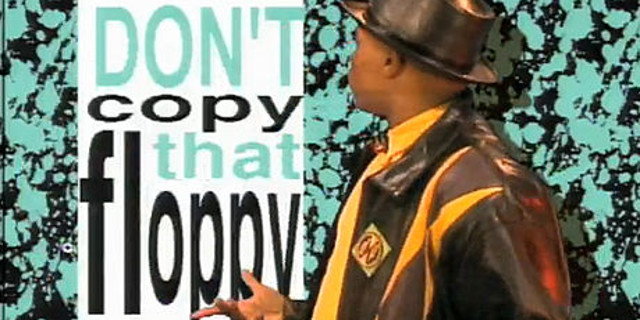The record labels are rolling in money from Spotify, and trying to make out to their artists that it’s somehow Spotify’s fault they’re not passing much of it onto them.
How to keep the artists distracted? How about a meaningless campaign against 2017 Enemy Number One, YouTube!
There’s been story after story about the evils of YouTube ripping, like Napster but with a video website. The stories lately have been about YouTube-MP3, a YouTube video ripping site I’d never heard of outside these stories and I bet you hadn’t either.
The problem with these stories are:
- There are no solid numbers to show this is even a meaningful problem. (There is an IFPI survey claiming 33% of 16-24 year olds stream-rip — though that number’s frankly implausible, and kids notoriously don’t actually have money anyway.)
- Ripping sound from streams, and particularly from YouTube, has always been trivial.
I feel like I’m giving away the game here by revealing the truth to the terminally incompetent, but good Lord this is ridiculous. YouTube has preripped files of every video — video with audio, video-only or audio-only in various formats (MPEG4, WebM, 3GP, Opus, Ogg, AAC) and resolutions. They’re right there! You can literally just download them! To access them, you just need to know YouTube’s URL formats. There have been endless web browser extensions since YouTube started that do this for you. (I use one.) YouTube-MP3 almost certainly just did this for its users. Anyone could.
How could YouTube allow such a thing? Because … when you watch a video, you are downloading it. There is no difference between streaming and downloading, and there never has been. They are literally the same action: you send a stream of bytes to the user’s computer. Streaming without downloading does not exist.
Blocking YouTube-MP3 was approximately the most ineffectual possible action the labels could have taken, let alone gone on to make a fuss about.
(By the way — it’s trivial to download the “streaming” files on Bandcamp too. Do “view source,” look for popplers5.bandcamp.com, that URL’s the file. The reason people don’t do this is because they know they’d be taking a sandwich direct from the musician’s mouth and would feel like arses for doing it. If you want money for music in 2017, you have to make people want to give you money. So if the labels just start paying their artists 85% …)
But never mind all this “reality-based” bafflegab — HOW DO WE BLOCK THE EVILS OF YOUTUBE? Well, firstly you tell YouTube not to make these files accessible any more, even though there’s literally no difference between streaming and downloading and the files are literally the things they send people to play stuff … or you could put in the DRM that makes Spotify not work half the time these days … or you could make it so nobody can play sound on their computer, so they can’t rip the hi-res audio you’re trying so hard to push direct from their sound card … or other ways to reimplement early 2000s DRM, the best marketing tool BitTorrent ever had …
No, what you actually do is make the legal alternatives better than the illegal ones. Netflix, Spotify and iTunes won by being more convenient than piracy. People will pay for convenience, we’ve tested it! So you need to fill out the catalogues on the legal services and give a damn about the paying customers. I use YouTube over Spotify casually because it’s ten times easier to quickly find a particular thing I want to listen to, even though I want to use the service that pays artists more. You have to make the service you live off suck less for the people giving you money, e.g., me. HELLO, MIDDLE-AGED MUSIC NERD WITH AN INCOME HERE, I’M WAVING CASH AT YOU!
And then you need to treat any stream-ripping the kids do as your one chance to colonise their brains early, because once they’ve got a job and money they’ll be spending it on box sets for the next thirty years. C-30, C-60, C-90, go.


David, can you explain (to someone who knows very little about the business of making music and delivering it to an audience) why artists still use record labels in 2017? Or point to an existing explanation? I don’t understand what artists get out of the deal (or at least what they think they get out of the deal), and it seems like there are a multiple alternative distribution strategies available, but yet the record labels are still here, despite a long-standing reputation that would make a vampire blush.
Mostly that having a publisher do the tedious parts that they do well is an attractive offering. I just self-published a book, and it’s done very well for a completely indie production, but goodness me I’m gaining insight into why people get someone else to do all this stuff.
But your question is a good and obvious one that industry figures also ask. A while ago I posted this essay by David Emery on this precise question. tl;dr the labels haven’t got a consistent excuse either. Edit: huh, looks like I didn’t. It’s a good essay though.
The actual answer is probably “they have money, power, access and experience.” Whether that does you any good is another question.
The thing an aspiring star probably needs most in 2017 is good management.
Thankyou, that’s interesting.